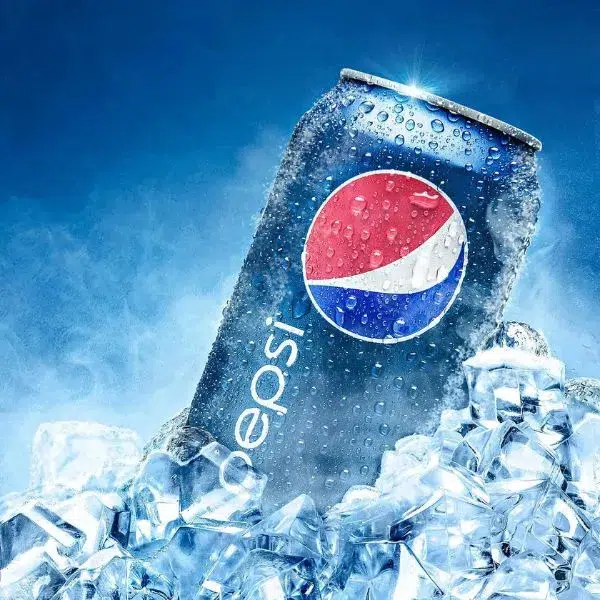Is Pepsi Halal?
Pepsi is one of the most popular carbonated beverages worldwide, enjoyed by millions. But for Muslims who follow Islamic dietary laws, the question arises: Is Pepsi halal? This is an important consideration, as halal food and drink must meet specific guidelines set by Islamic law. In this blog, we’ll take a closer look at the ingredients, production process, and certification status of Pepsi to help you determine whether it meets halal standards.

What Makes a Drink Halal?
To answer the question about Pepsi, it’s essential to understand what makes a drink halal (permissible) in Islam. A drink must meet the following criteria to be considered halal:
- Ingredients: The product must contain only permissible ingredients. This means no alcohol, pork, or any substance forbidden in Islam.
- Processing: The manufacturing and handling processes must not contaminate the drink with non-halal substances.
- Certification: Many Muslims prefer certified halal products, which are verified by recognized Islamic bodies to ensure compliance with halal standards.
Now that we know the requirements for halal drinks, let’s take a closer look at the specific ingredients and production methods used by Pepsi.
Ingredients in Pepsi
Pepsi, like most soft drinks, contains several key ingredients:
- Carbonated Water
- High Fructose Corn Syrup (HFCS) or Sucrose
- Caramel Color (E150d)
- Phosphoric Acid
- Caffeine
- Citric Acid
- Natural Flavors
1. Carbonated Water
Carbonated water is simply water that has been infused with carbon dioxide to create bubbles, and it does not pose any halal concerns.
2. High Fructose Corn Syrup (HFCS) or Sucrose
HFCS and sucrose are sweeteners derived from corn and sugar. These are both halal and are commonly used in many soft drinks.
3. Caramel Color (E150d)
Caramel color is used to give Pepsi its brown color. There have been concerns in the past about the use of alcohol in the production of caramel color. However, modern production methods have eliminated alcohol as a part of the caramelization process. Pepsi’s caramel color is now considered halal.
4. Phosphoric Acid
Phosphoric acid is a common additive in soft drinks, used to add tanginess. It is not derived from any haram sources and is halal.
5. Caffeine
Caffeine in Pepsi comes from either natural sources like coffee beans or is synthetically produced. Since caffeine itself is halal, it does not present any issues for Muslim consumers.
6. Citric Acid
Citric acid is typically derived from citrus fruits and is halal. It is commonly used in sodas to provide acidity and enhance flavor.
7. Natural Flavors
One of the primary concerns for many Muslims regarding Pepsi is the “natural flavors” used in its formulation. In the past, some natural flavors were derived from animal sources, raising doubts about whether they were halal. However, Pepsi has clarified that its natural flavors do not contain any animal-derived ingredients, and they are plant-based. Therefore, they are considered halal.
Alcohol in Pepsi
Another concern with Pepsi is the potential presence of alcohol, especially since alcohol can sometimes be a by-product in the production of certain ingredients, like the caramel color. Pepsi has assured consumers that any alcohol used in the manufacturing process is either non-existent or evaporates during production. Therefore, the final product does not contain any detectable alcohol.
Halal Certification
In many countries, Pepsi does not carry explicit halal certification on its packaging, especially in Western markets like the U.S. and Europe. However, in countries with large Muslim populations, such as parts of the Middle East, Pepsi products are often halal-certified by recognized authorities like the Halal Food Authority (HFA) or Islamic Services of America (ISA). These certifications confirm that Pepsi meets halal standards in terms of ingredients, processing, and production methods.
If you are looking for halal-certified Pepsi, you may find it in regions where Islamic certification is common. Always check the packaging for a halal certification logo or consult with local halal certification bodies.
Why Some Muslims May Avoid Pepsi
While many Muslims may consider Pepsi halal, some choose to avoid it for the following reasons:
- Lack of Halal Certification in Some Regions: Pepsi products may not carry halal certification in certain countries, leading some consumers to be cautious about their halal status.
- Ambiguity of “Natural Flavors”: Even though Pepsi claims its natural flavors are plant-based, some Muslims may avoid the drink due to uncertainty about the ingredients or production processes.
- Ethical or Personal Preferences: Some people avoid Pepsi for reasons unrelated to halal status, such as concerns about the company’s business practices, environmental impact, or other ethical considerations.
Alternatives to Pepsi
If you’re unsure about whether Pepsi meets your halal requirements, there are many alternatives available. Some soft drink brands are explicitly halal-certified, such as Mezzo Mix, Sunkist, and 7UP, which may offer more transparency about their ingredients and production methods. Additionally, fresh juices, flavored waters, and other non-carbonated beverages are excellent halal-friendly alternatives.
Conclusion
In summary, Pepsi is generally considered halal due to its ingredients and production process. However, some Muslims may choose to avoid it due to the lack of certification in certain regions or concerns about the source of “natural flavors.” If you are unsure, always look for a halal certification logo on the packaging or opt for other beverages that are explicitly certified halal.
As always, the decision to consume Pepsi or any other product depends on individual preferences and the level of certainty you seek regarding halal compliance. If you want complete assurance, there are many halal-certified soft drink options available to enjoy.



[…] conclusion, while Pepsi in the U.S. is not formally halal-certified, it is generally considered halal by many due to the […]